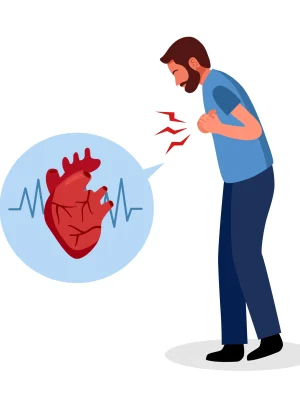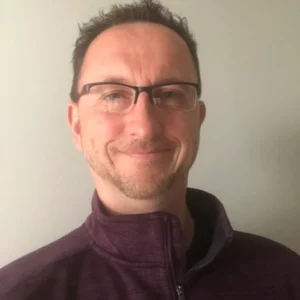When most people think about addiction, the first thing that usually comes to mind is illegal drugs. However, prescription medications are as addictive as illicit drugs and narcotics. Those who become addicted to prescription drugs require just as much support through medically supervised detox and treatment centers. Anyone can fall victim to prescription pill abuse. Learning how to identify potential abuse can help you determine if you or someone you love may benefit from addiction treatment.
This article outlines seven reasons why prescription drug abuse, often referred to as “popping pills,” poses significant dangers. You’ll also learn how to spot signs of medication abuse in yourself or a loved one, along with steps you can take to offer support and assistance.
Connect With Us Now
Reach out to us now for immediate support, or let us know the best time to contact you through our confidential callback service. Your journey to healing is just a conversation away.
What Does “Popping Pills” Mean?
“Popping pills” is a phrase that refers to chronic prescription drug abuse during which you take more medication than what your physician may prescribe. It may also describe taking medication that is not prescribed to you or taking multiple drugs at once.
- Fifty-two million Americans over 12 have abused prescription drugs at least once.
- Prescription medications are the fifth most abused substance after alcohol and tobacco.
Most Commonly Abused Prescription Medications
The most commonly abused pills are medications prescribed for pain relief, insomnia, and anxiety. When used incorrectly and in the wrong dosages, these medications can cause significant complications and even death. The most commonly abused prescription drugs are:
- Barbiturates (Amytal, Seconal, Butisol, etc.)
- Benzodiazepines (Xanax, Valium)
- Sleep medications (Sonata, Halcion, Ambien)
- Opioids (OxyContin, Percocet, Vicodin, Lortab, etc.)
- Amphetamine (Adderall)
- Methylphenidate (Ritalin and Concerta)
- Dextromethorphan (Tossin Cough, Delsym, Vicks DayQuil Cough)
- Pseudoephedrine (Sudafed, SudoGest)
While most of these medicines require a prescription, people with an addiction often purchase these pills from dealers, friends, family, or anyone else with a valid prescription. Many times, pills purchased on the streets are counterfeit and laced with other substances like fentanyl, cocaine, and methamphetamines. Taking multiple pills containing various substances can induce overdose and death.
Read about the difference between amphetamine and methamphetamine here.

Why Popping Pills Is Dangerous
When people start popping pills, they do not intend to become addicted. However, when a person abuses drugs long enough, they cause their brain chemistry to change, which increases their need for more. Eventually, most addicts no longer chase a “high,” but they continue using it to avoid painful withdrawal symptoms. Because of this, many become stuck in the cycle of prescription drug abuse.
Mixing any combination of medications with illegal drugs and alcohol is extremely dangerous, and the effects can be unpredictable. Fatal overdoses most often occur when there is more than one drug present in the system. Mixing drugs is also called “poly-drug use” and is particularly concerning since different drugs affect people in various manners.
Popping pills can induce:
- Slowed or stopped breathing
- Dangerously decreased heart rate
- Significant cognitive impairment
- Heart attack
- Major organ damage
- Coma
- Death
Often, people fail to realize the serious effects that combining drugs can have on the system. The results may lead to unintended drug overdose, and the consequences can be lethal.
Learn more about crossfading, a term used to describe taking multiple drugs with different effects all at once.
Take Our Addiction Quiz For Recovery Insights
Signs You Or A Loved One Is Abusing Pills
Anyone can become addicted to prescription drugs. It’s essential to learn what to look for if you suspect your loved one may be misusing prescription pills. Signs of addiction differ depending on the individual and the substance. Some things to look for include:
- Missing pill bottles and medication
- Sudden changes in their finances
- Dramatic mood swings and an increase in hostility, agitation, or anxiety
- Changes in friendships
- Decreased productivity and a change in sleep and appetite
- Fatigue, weight loss, dizziness and confusion
- Lack of concern about personal hygiene and appearance
What To Do If A Loved One Is Popping Pills
Addiction to prescription medications can be deadly. If you or someone you love is struggling with addiction, there are treatment options available to help restore your health and start a journey towards sobriety.
Most treatment options incorporate behavioral treatment plans with medication to alleviate potential symptoms of withdrawal. Behavioral treatment approaches help clients stop using drugs by modifying unhealthy patterns of behavior and thoughts. In addition, clients will learn how to avoid situations or triggers which may lead to relapse.
Partial hospitalization programs allow patients to participate in intensive therapy and receive medical care they may require throughout treatment. These programs are also called “day rehab” and include a combination of one-on-one counseling with a professional, group therapy sessions, medication management, and aftercare treatment planning. Clients enrolled in these programs also reside at a sober living facility and return there at the end of each day.
Those with less severe cases of addiction or who are transitioning from inpatient rehabilitation may find intensive outpatient programs helpful. Outpatient programs are structured, and participants follow a routine and schedule, which helps them build skills and strategies to stay sober. During IOP programs, clients go home each night and participate in their regular daily activities while receiving treatment. These programs also include group therapy, support groups, individual counseling sessions, and life skill classes.
While outpatient programs grant more flexibility and the freedom to come and go as one pleases, inpatient programs can help stabilize clients and provide more hands-on support for those who need it. The right option depends on the client’s needs, and a thorough assessment with a qualified specialist will help determine which one works best.
Are You Covered For Treatment?
East Coast Recovery Center partners with numerous private insurance providers. Our team is committed to assisting you in quickly and effortlessly verifying your insurance coverage for treatment.
Prescription Medication Addiction Treatment In Cohasset, MA
If you or a loved one is popping pills or abusing their prescription medication, contact East Coast Recovery Center in Cohasset, Massachusetts. Our addiction treatment center is the perfect place to overcome addiction and find true meaning in life. Our blend of evidence-based treatment therapies and holistic healing modalities creates an all-encompassing program that heals the mind, body, and soul. Call, email, or fill out a form today to get started.
Reviewed By A Specialist In The Field

Dr. Brady J. Schroer is a psychiatrist in Asheville, North Carolina and is affiliated with Pardee UNC Health Care-Hendersonville. He received his medical degree from Kansas City University of Medicine and Biosciences College of Osteopathic Medicine and has been in practice for more than 20 years.
Explore Our Continuum of Care
East Coast Recovery is proudly partnered with addiction treatment centers and detox facilities under the umbrella of Health Care Alliance North America. Our goal is to help individuals through each recovery step, from detox services and overnight treatment to outpatient and dual diagnosis treatment across three states.











